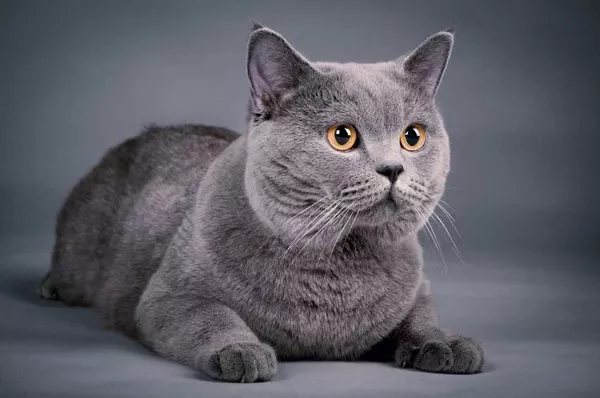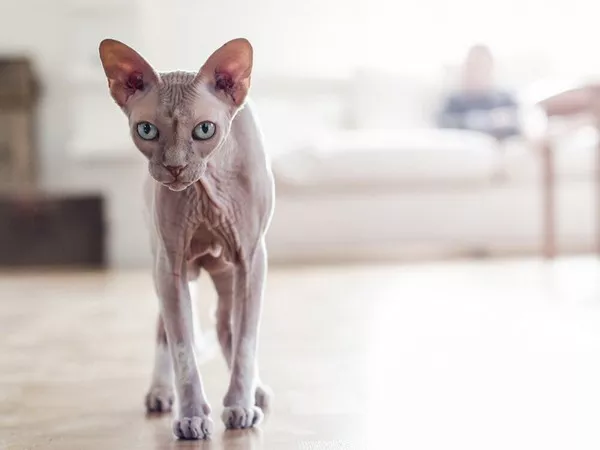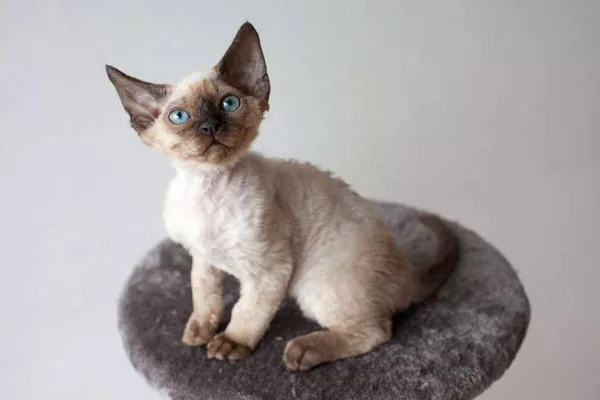British Shorthair cats, with their distinctive round faces, plush coats, and charming personalities, have become a beloved breed for cat enthusiasts worldwide. Ensuring these regal felines receive the best nutrition is paramount to their well-being. In this detailed guide, we explore the unique dietary requirements of British Shorthair cats, unveil the top considerations for their nutrition, and provide a comprehensive list of the best cat food options tailored to meet their specific needs.
Understanding the Essence of British Shorthair Cats
Before delving into their dietary needs, let’s unravel the essence of British Shorthair cats. Known for their sturdy build and plush fur, these cats boast a rich history dating back to the Roman Empire. Over the centuries, careful breeding has refined their characteristics, resulting in the charming and adaptable companions we know today. British Shorthairs are often characterized by their round faces, large eyes, and a distinctive coat that comes in various colors and patterns.
Decoding the Nutritional Blueprint
Cats, as obligate carnivores, have unique nutritional requirements that differ from other domesticated animals. Understanding the nutritional blueprint for British Shorthair cats involves recognizing key elements essential to their health:
1. High-Quality Animal Protein:
British Shorthairs thrive on diets rich in animal protein.
Opt for cat foods where real meat is the primary ingredient, ensuring it comes from reputable sources.
2. Essential Fatty Acids:
Omega-3 and omega-6 fatty acids contribute to a healthy coat, skin, and overall immune function.
Look for cat foods with added fish oil or flaxseed to provide these essential fatty acids.
3. Controlled Carbohydrate Intake:
Cats have limited ability to digest carbohydrates, and their diet should prioritize proteins and fats.
Choose cat foods with lower carbohydrate content to align with their natural dietary preferences.
4. Adequate Hydration:
British Shorthairs might not be inclined to drink water frequently, making wet cat food an excellent choice.
Incorporate wet food into their diet to support kidney function and prevent urinary issues.
Navigating the Best Cat Food Options
Now that we understand the nutritional needs of British Shorthair cats, let’s explore the best cat food options available to keep these charming companions in optimal health:
1. Royal Canin British Shorthair Adult Dry Cat Food:
Specifically formulated to meet the nutritional needs of British Shorthair adults.
Features a blend of nutrients to support bone and joint health, essential for their sturdy build.
2. Hill’s Science Diet Adult Indoor Dry Cat Food:
Tailored for indoor cats, addressing the lifestyle of many British Shorthairs.
Contains high-quality protein for lean muscle maintenance.
3. Blue Buffalo Wilderness Chicken Recipe Grain-Free Dry Cat Food:
Grain-free option suitable for cats with potential grain sensitivities.
Packed with real chicken to satisfy their carnivorous instincts.
4. Nutro Wholesome Essentials Indoor Dry Cat Food:
Crafted with non-GMO ingredients for a wholesome approach to nutrition.
Supports healthy digestion and a shiny coat.
5. Purina Pro Plan Savor Salmon & Rice Formula Dry Cat Food:
Features real salmon as the main ingredient for a protein-rich diet.
Incorporates rice for a balanced carbohydrate source.
Tailoring a Nutrition Plan for British Shorthairs
Crafting a nutrition plan for your British Shorthair involves considering various factors, including age, weight, activity level, and any specific health concerns. Here’s a guide to help you create a tailored meal plan:
1. Age-Specific Nutrition:
Kittens, adults, and seniors have different nutritional needs.
Choose cat foods formulated for their specific life stage.
2. Weight Management:
Monitor your cat’s weight and adjust their caloric intake accordingly.
Engage in interactive play sessions to encourage physical activity.
3. Hydration Emphasis:
Ensure your British Shorthair stays hydrated, especially if they primarily consume dry cat food.
Incorporate wet cat food or provide additional water sources.
4. Regular Vet Check-ups:
Schedule routine veterinary check-ups to monitor their overall health.
Discuss their diet with the veterinarian to address any specific health considerations.
Addressing Breed-Specific Health Considerations
While British Shorthairs are generally robust, it’s crucial to be aware of breed-specific health considerations:
1. Dental Health:
Include dental care practices such as teeth brushing and dental treats.
Choose dry cat food with a texture that promotes dental health.
2. Potential Weight Issues:
British Shorthairs may be prone to weight gain.
Opt for portion control and weight management strategies to keep them at a healthy size.
3. Hairball Prevention:
Their dense coat might contribute to hairballs.
Choose cat foods with added fiber to support hairball prevention.
Conclusion
Providing the best cat food for your British Shorthair involves a combination of understanding their nutritional needs, selecting high-quality options, and tailoring their diet to individual requirements. As charming companions with a unique set of characteristics, British Shorthairs deserve a nutrition plan that supports their overall health and happiness. Remember, observing their preferences, staying attuned to their health, and consulting with a veterinarian are key elements in ensuring a nourishing and fulfilling diet for your cherished British Shorthair companion. Embrace the joy of feline companionship, knowing you’re providing them with the royal treatment through thoughtfully chosen meals.



























